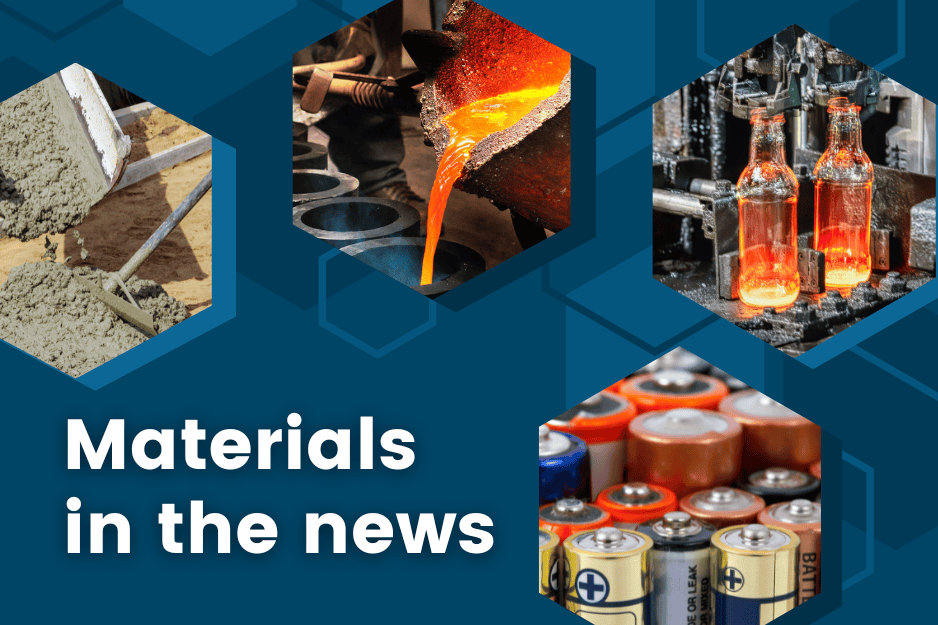
[Images above] Credit: NIST
NANOMATERIALS
A polar-bear-inspired material for heat insulation
Materials scientists in China developed an insulator from hollowed-out carbon tubes wound together in a spaghetti-like aerogel block. Compared to other aerogels and insulation components, they found this polar-bear-inspired design was lighter in weight and more resistant to heat flow.
Bioinspired materials—Graphene-enabled nickel composites
University of Virginia and Northwestern University researchers developed a bioinspired Ni/Ni3C composite to mimic nacre-like brick-and-mortar structure with nickel powders and graphene sheets. They showed the composite achieved 73% increase in strength with only 28% compromise in ductility.
Engineers design nanostructured diamond metalens for compact quantum technologies
University of Pennsylvania researchers found by fashioning a pattern of nanoscale pillars on the surface above a certain kind of defect inside a block of diamond, they can control the shape of individual photons emitted by the defect.
ENVIRONMENT
“Self-healing” polymer brings perovskite solar closer to market
Okinawa Institute of Science and Technology Graduate University scientists report a protective layer of epoxy resin helps prevent leakage of pollutants from perovskite solar cells. Epoxy resin works due to its “self-healing” properties. After its structure is damaged by hail, for example, the polymer partially reforms its original shape when heated by sunlight.
MANUFACTURING
Old glass may find use in new, better concrete
Researchers at Australia’s Deakin University discovered ground glass can be used to make polymer concrete, a concrete in which polymers replace lime-type cement as a binder. The specific type of waste glass used in the project was unsuitable for recycling back into glass, and so creating concrete could offer an alternative to stockpiling the glass.
OTHER STORIES
Chip startup uses light to turbocharge AI
Luminous Computing, which recently raised $9 million of seed funding from prominent investors including Bill Gates, plans to accelerate AI with a new chip. While conventional semiconductors use electrons to help carry out the demanding mathematical calculations that power AI models, Luminous is using light instead.
Settling the debate: Solving the electronic surface states of samarium hexaboride
A team led by Osaka University used angle-resolved photoelectron spectroscopy to probe the unusual surface conductivity of samarium hexaboride crystals. They showed the material is a coexisting phase of “topological insulator” in which electrical current can flow along the surface but not through sample’s bulk.
‘Sandwich’ structure key to thin LSMO films retaining magnetic properties
Researchers at North Carolina State University found the oxide ceramic material lanthanum strontium manganite retains its magnetic properties in atomically thin layers if it is “sandwiched” between two layers of a different ceramic oxide, lanthanum strontium chromium oxide.
National MagLab creates world-record magnetic field with small, compact coil
National High Magnetic Field Laboratory researchers created a miniature magnet that generates a world-record 45.5 tesla magnetic field. To put it in context, hospital MRI magnets generate about 2 or 3 teslas, and the strongest, continuous-field magnet in the world is MagLab’s heralded 45-tesla hybrid instrument, weighing 35 tons.
First ever intrinsic magnetic topological insulator
Researchers discovered the first ever intrinsic magnetic topological insulator—a stoichiometric compound that boasts both inherent magnetic order and topological insulator characteristics. The material, MnBi2Te4, could be the ideal platform in which to study exotic quantum phenomena such as the quantum anomalous Hall effect.
Author
Lisa McDonald
CTT Categories
- Weekly Column: “Other materials”
